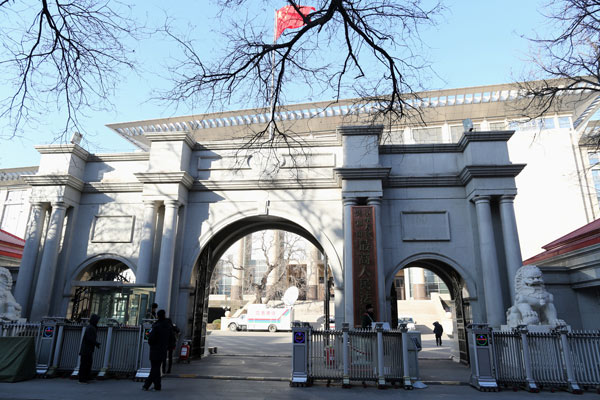 |
|
The Supreme People's Court in Beijing heard more than 2,000 cases in 2013 seeking compensation for wrongful actions by the State. Wang Jing / China Daily |
Wrongful convictions can take many years to investigate, overturn
Progress in human rights can take time. Sometimes, it takes too long.
It took many years of desperate appeals and agonized waiting for the parents of Hugjiltu to clear their son's name after he was convicted and executed 18 years ago for crimes he had not committed.
Hugjiltu, from the Inner Mongolia autonomous region, was convicted of a rape and murder in Hohhot, Inner Mongolia's capital city, in 1996.
The case triggered controversy and resulted in further investigation by judicial officers after Zhao Zhihong, who was arrested in 2005 on other offenses, confessed he was the culprit in the crimes for which Hugjiltu was convicted.
However, it took many years before the justice authorities decided in 2014 to retry Hugjiltu and Zhao. Hugjiltu was declared innocent on Dec 15; the trial of Zhao is continuing in the Hohhot Intermediate People's Court.
More fortunate than Hugjiltu's parents, who are both in their 60s, is Nian Jianlan, who can again hug her younger brother, Nian Bin, after he was acquitted on Aug 22. Nian Bin was jailed for years in Fujian province after being wrongly convicted of poisoning his neighbors and causing the deaths of two children in 2006.
His conviction was overturned after his sister appealed for many years, and he was declared innocent in August.
Over the last year, China has quickened its progress in investigations and retrials of suspected wrongful convictions.
Legal experts say the progress has been noticeable since Xi Jinping became China's new leader at the 18th National Congress of the Communist Party of China in November 2012.
Since then, according to People's Daily, at least 23 wrongful convictions have been overturned, mostly because of insufficient evidence.
The acceleration in judicial corrections has stirred heated discussions among judicial specialists, many of whom see it as progress in protecting human rights and improving judicial credibility.
